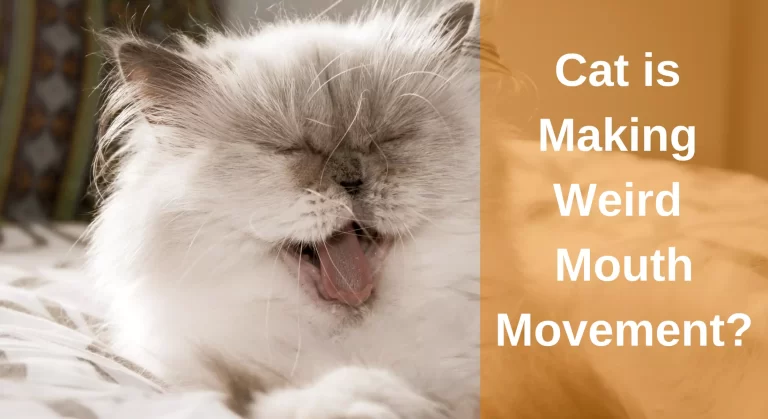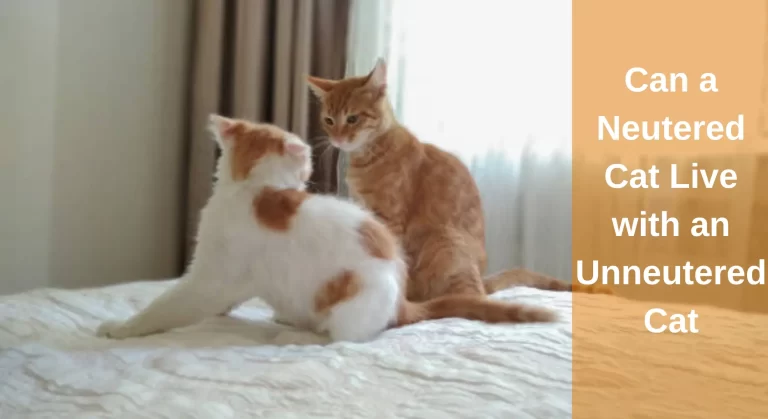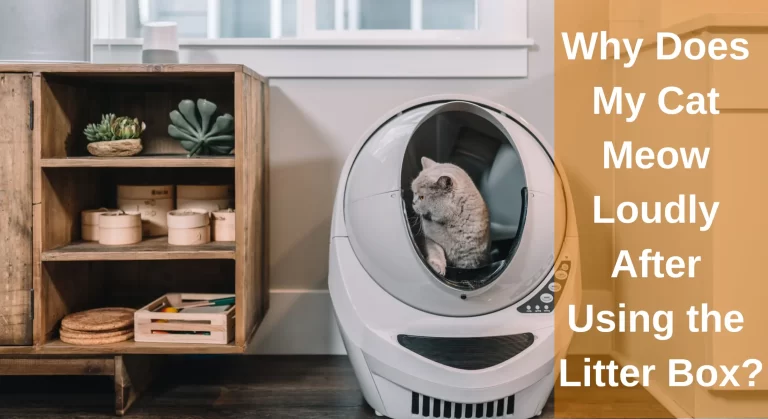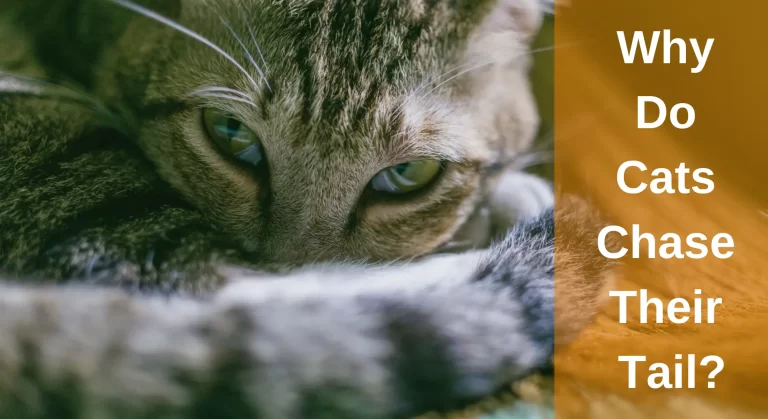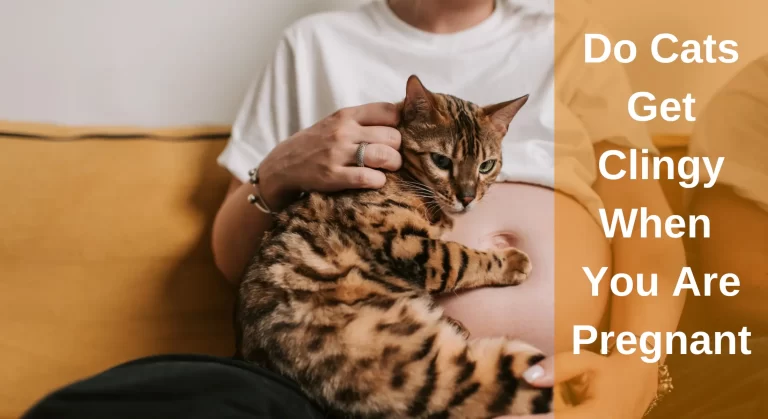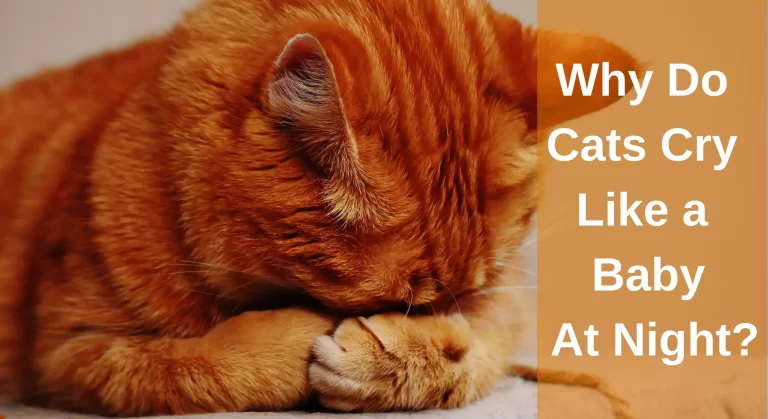I Got A New Kitten And My Cat Hates Me – What Do I Do?
Many people are unaware that it is quite upsetting for your domestic cat to accept a new cat in your home. It usually happens when you’ve only a single cat that spends most of its time living alone in your home. Most of you have observed that your old cats may show depressive symptoms when you adopt and bring a new kitten into your home.
I Got A New Kitten and My Cat Hates Me: The reason behind this is that your old cat may become jealous of the new kittens as he feels like your new kitten will take his territory. As a result of this, your old cat may hiss at visitors or a new cat and even face weight loss due to lack of hunger because of getting jealous and ignored.
In comparison to us, cats have quite distinct social demands. It requires some effort and time to get used to living with new cats. Nobody wants that their old cats feel neglected or replaced when new cats come home. But if everything doesn’t go well according to your plan and your old cat gets depressed, then continue to read this post to fix this issue. Here, I’m going to suggest some tips that will help you to keep your old cat happy after getting a new kitten.

Do Cats Get Jealous of New Kittens?
Yes, your resident cat may feel jealous of new kitties. It mostly occurs when you give less care to your old one, which makes her envious of a new kitten; before the new kitten arrives, she’s the only beloved cat in your house. Cats always want to establish their kingdoms and may become irritated if a new kitten threatens their authority.
Check Out: Why Do Mother Cats Attack Their Older Kittens?
Why Do Old Cats Reject New Cats?
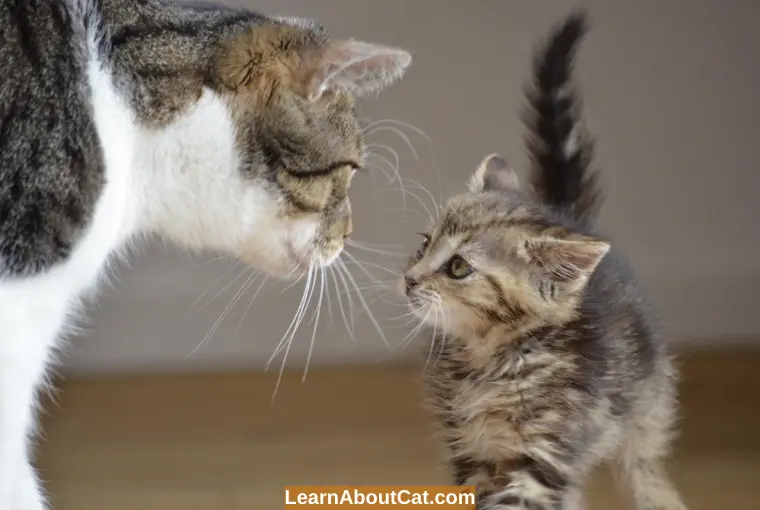
- Cats might have a hard time sharing their space and resources since they’re dominant animals.
- However, cats are social creatures, but they don’t accept new kittens easily in their territory.
- Cats also hate new felines because they think they’ve to share their room, toys, food, and water bowl with them.
- Your old cat may think that new felines are taking your attention and you’re giving them more time.
- Your old cat might not be friendly and doesn’t like unfamiliar cats or people.
Also Read: When Will My Cat Stop Hissing at New Kittens or Cats?
Will My Cat Not Like Me if I Get a New kitten?
It is common for your first cat to get extra care, pampering, and be treated like the family’s “baby.” This is okay unless a new kitty is introduced in your home that develops jealousy issues in your old cat.

If your old cat is grown alone and had no positive contact with other animals, especially kittens, within its 2-7 weeks of early socialization phase. Then it’s obvious that your cat may hate you, and it could even get more serious if you started to pay extra attention to new kittens. It’s our fault that we don’t train our cats to be social with other kittens; that is why we face this hate from them on adopting a new kitty.
How Long Does it Take For a Cat to Get Used to a New Kitten?
A cat will take weeks to months, and the old cat takes almost 8 to 12 months to get friendly with your new kitty. But be patient! Developing a friendship bond between 2 different felines takes a long time, and don’t hurry to introduce your new kitty gradually to your old one. If you ever do hurry in this case, your old cat may hiss or even swat at your new kitty to show her dominance.
How Can You Stop Your Old Cat From Rejecting the New One?
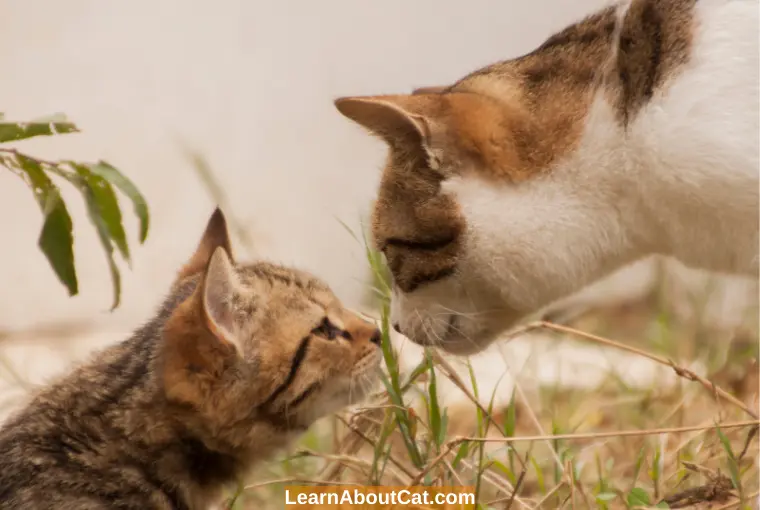
1. Provide them with Different Locations to Eat
Ensure your new kitten eats its food and drinks water in a separate space. Keep them separated and provide separate resources so that your new kitten can enjoy its peace. Moreover, this way, your old cat won’t be possessive about her meal.
2. Give them Different Spaces for Sleeping
Separate living areas should be provided for both of your cats’ old and new ones. If you ever put your new kitten in place of your old cat’s bed, she may get jealous of your new feline and also hurt her.
3. Ensure that Your Cats have a Separate Litter Box
Having two cats in your home is like making a place of war. So, you must put at least 3 extra litter boxes for them so that they don’t need to wait for their turn to use their restroom.
Also, Check Out: Litter Box Ideas for Multiple Cats – Top Solutions
4. Spray Feline Pheromones to Keep Your Cats Quiet
Cats can be relaxed and calm down by spraying pleasant pheromones in your home. In this way, they’ll be less likely to harass your new cat and prevent them from fighting with each other.
5. Give Your Kitties Snacks to Foster Favorable Relationships
When you’re cuddling your new kitty, you have to provide some treats to your old one so that she’ll also be happy that you’re paying attention to her. In this way, she won’t grow any unfriendly feelings against your new kitty. While eating her favorite treats, she may smell your new kitty and connect it with the aroma of the food. Your new kitty will also smell good to her, and she’ll realize her a good friend.
6. Never Leave Your Old and new Cats Unattended
At the beginning of the bonding journey, keep your cats separated and keep an eye on them. It’s strictly advised not to leave them alone as they may quarrel about their resources; sleeping place, litter box, toys, food or water bowl, etc.
How To Make Old Cats Familiar With New Cats? What Do I Do if My Cat Hates My New Kitten?
Your resident cat is unfamiliar with your new kitty, so to avoid “I got a new kitten, and my cat hates me,” you need to follow these tips:
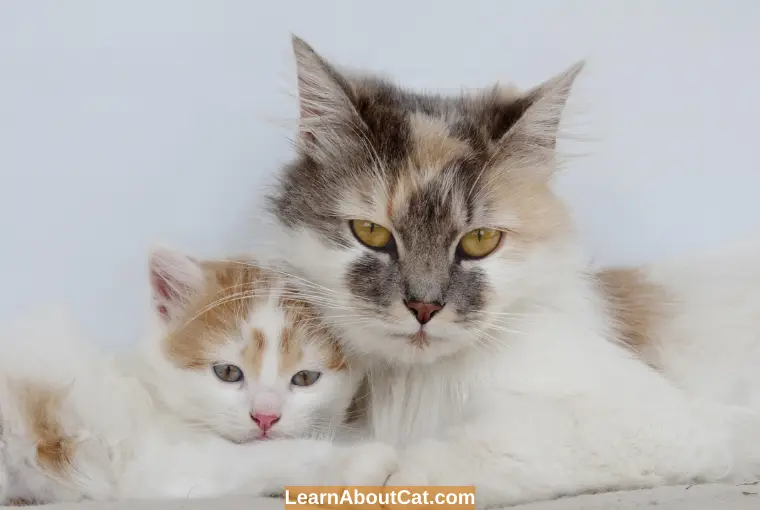
1. Prepare New Equipment
You must separate your new kitten from the old one and set up a separate place for its residence. You must buy new equipment for your new kitty, including a sleeping rug, dishes for food, or a sandbox.
2. Your kitties Deserve Enough Time
You’ve to love and care for both kitties equally. Play and also pet them. You must spend 20 minutes playing with both your cats 2 times a day and make sure to give equal time to both of them.
3. Keep Both Cats Apart
During the initial days of cats meeting, try to avoid letting your cats touch each other. Place the new cat in a compact space where they feel easy and won’t interact with your old cat. Start their interaction after 7 days.
4. Perform a Physical Introduction
While allowing them to see each other, don’t let them physically touch. In this situation, a baby or dog gate is the best option to keep them apart. Observing their body language while doing interactions, you can see whether your old cat is welcoming other kittens or does their body language shows distress.
5. Use Fragrance to Introduce Them
Below a door allows your cats to sniff their stuff, such as toys or clothes, but keep them apart from one another. This way, your new cat gets to the new kitties’ scent. This will help your cat to admit that there’s another kitten in your home.
How Long Will My Cat Be Mad at Me for Getting a Kitten?
Unless your old cat doesn’t accept your new kitty, he’ll keep hating you. However, you can also lessen their hate by giving more attention to your old cat before the new one. Make your old cat feel that she’s still your priority, and try to feed her before feeding your new kitty. These tips will help to lessen your cat’s hate towards you.
Check Out: Do Cats Get Mad At You?
How to Make Your Old Cat Love You When You Get a New Kitten?
You need a strategy to convince your old cat to love you after adopting a new cat. Moreover, to avoid your cat’s hate follow these tips:
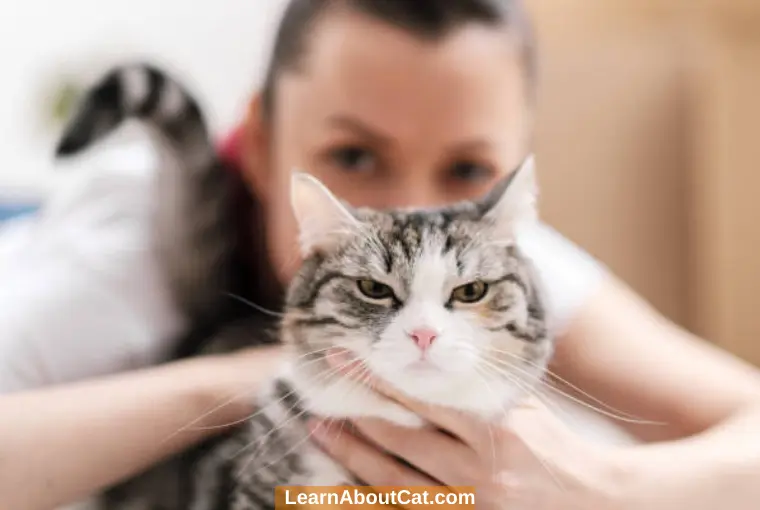
1. Feed Your Cat Regularly
Your old cat won’t feel neglected or alone if you manage to prepare a huge meal all day for her. It’s advised to feed your cat 2-3 times a day to strengthen your relationship with the cat.
2. Talk to Your Old Cat
Talking with your resident cat in a calming, ominous voice will convey to her a message that you still love her the same. But make sure your tone must be calm, and it mustn’t scare your cat.
3. Cheer up Your Cat
You can hook or attach your cat’s favorite toy with a rope to urge your cat to play with you. It’s the easiest approach to developing a stronger bond with your old cat.
4. Clean Up the Cat and Litter box
The presence of a clean environment and fur will make your cats happy. Cats don’t like a dirty Litter box. So, regularly clean them. Dirty furs and sand pots make your cats uneasy and unhappy. This may result in your cat showing negative responses.
5. Determine Emotional Cues
Cat parents know that when a cat moans, it shows her expressions of joy. Moreover, you might be unaware that giving your cat a slow blink shows that you are kissing your cat. So, doing this will give your cat a signal that you’re still loving her and not threatening.
Frequently Asked Question
I got a new kitten, and my cat hisses at me; why?
Old cats are habitual of living alone in your home, and as you know, cats possess a dominative nature. So, when a new kitten comes to your home, your old cat feels like he’s taking their territory. Moreover, they get jealous of the new kitten and may think you love and care for him more. That’s why your cat may hiss when you adopt a new kitten.
Will a new kitten upset my cat?
If your new kitten tries to take your cat’s territory, food bowls, toys, and as well as your attention. Then yes, she may upset your cat, and as a result, your cat may hate you.
Final Words!
In closing, I’ll say that the issue of “I got a new kitten, and my cat hates me” isn’t difficult to resolve. You’ve to use some strategies and tips to understand your old cat’s emotions and to make her familiar with the new cat.
Make sure to introduce both cats correctly to each other and never allow them to be alone or unattended. Provide them with separate resting and eating places, and ensure that your home doesn’t undergo any sudden changes when new cats come to your home.
Who is Isabella?
My name is Isabella, and I am a dedicated and knowledgeable cat enthusiast. With years of experience caring for cats and a deep love for felines, I made a mission to help other cat lovers navigate the challenges of cat ownership.

